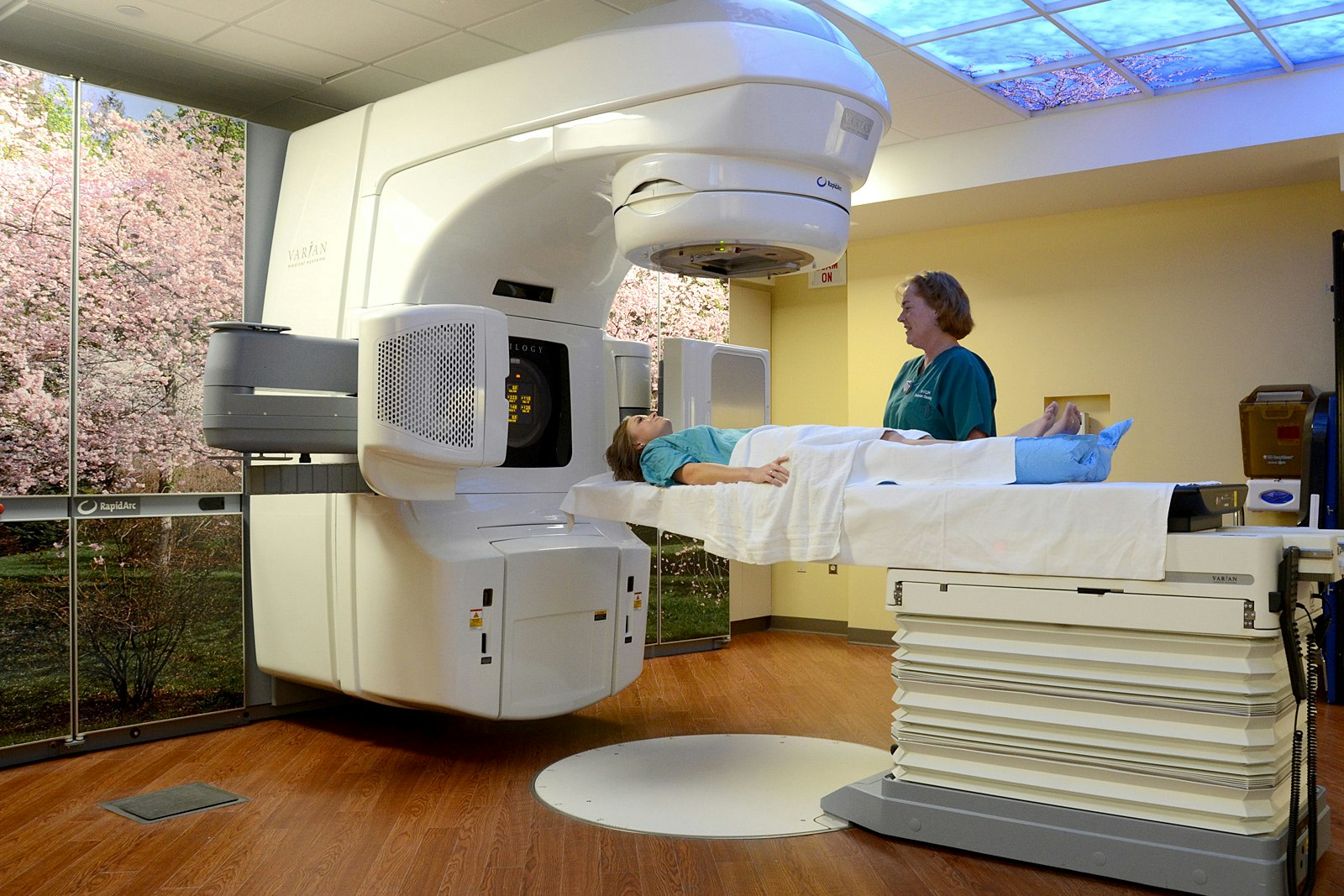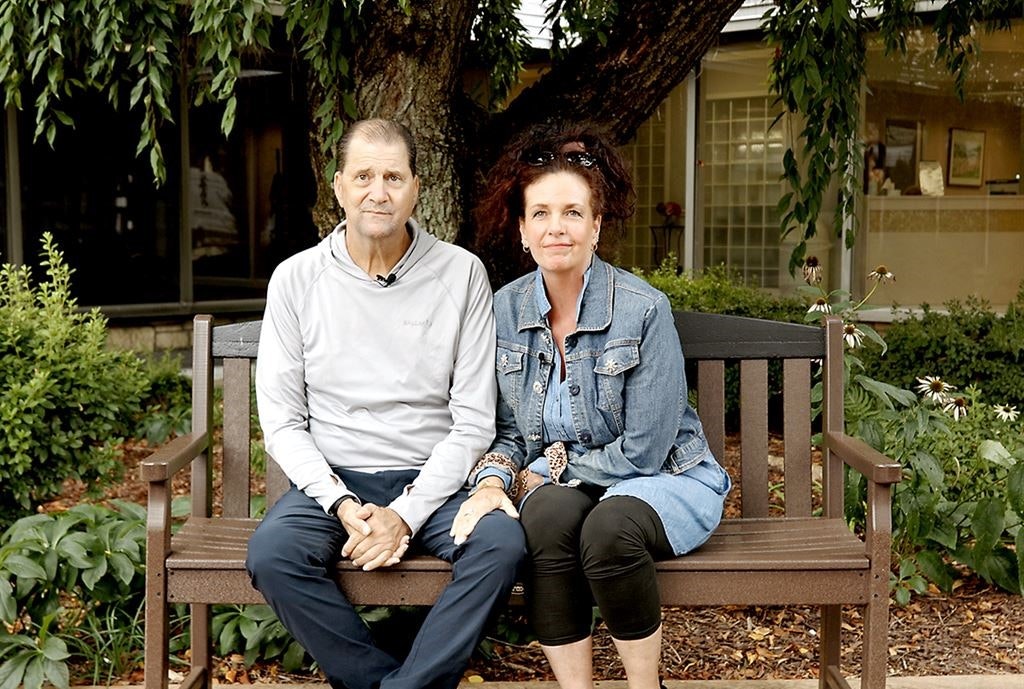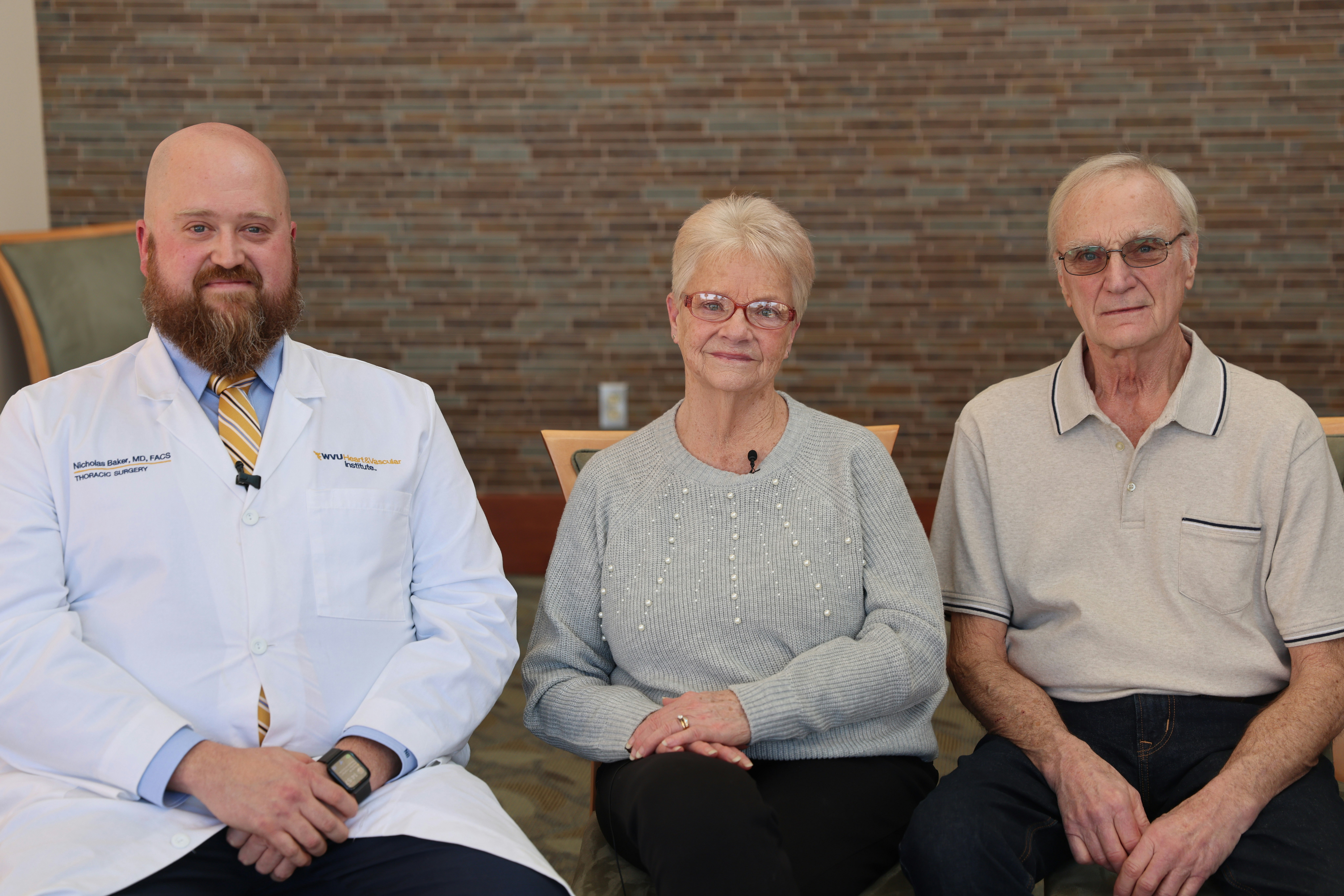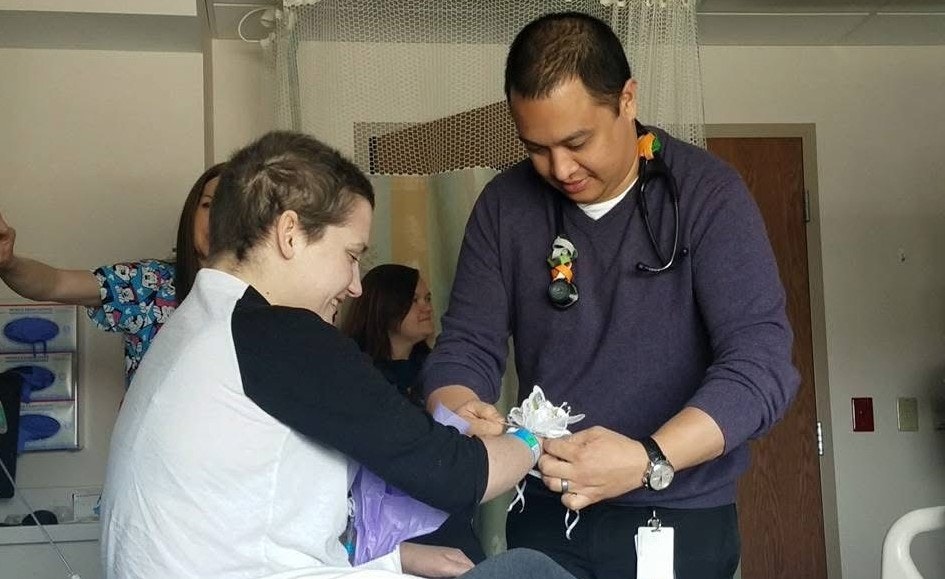
Blood cancers/disorders affect the way your blood cells produce new cells and the way they function. Blood cancers/disorders (also called hematologic cancers) either begin in the bone marrow, where stem cells produce red and white blood cells and platelets, or in the lymph nodes, where immune cells reside.
At the WVU Cancer Institute, our team of medical and radiation oncologists, surgeons, and nurses work with you to create a care plan to meet your exact needs. We take care of you every step of the way, from diagnosis through survivorship.
We’re proud to have been nationally recognized as high performing by U.S. News & World Report for our Leukemia, Lymphoma, and Myeloma Program.
Types of Blood Cancers We Treat
At the WVU Cancer Institute, we treat all types of noncancerous (benign) and cancerous blood diseases. We treat all three of the main types of blood cancers — leukemia, lymphoma, and myeloma.
Aplastic anemia
Aplastic anemia and other bone marrow failure syndromes are disorders affecting the bone marrow’s blood producing cells and resulting in severely diminished blood counts. Our team of hematologists has the expertise to manage these patients with immunosuppressive therapy, bone marrow stimulants, and when necessary, bone marrow transplantation.
Leukemia
This type of cancer occurs in white blood cells or bone marrow. It happens when cells begin to change and become a type of leukemia cell. Leukemia cells can grow faster than healthy cells. As they grow, they crowd out healthy cells.
There are several types of leukemia, including acute lymphoblastic, acute and chronic myeloid, chronic lymphocytic, hairy cell, and chronic myelomonocytic leukemia.
Lymphoma
Lymphoma develops in the part of the body’s immune system called the lymphatic system. There are two types of lymphoma, Hodgkin and non-Hodgkin. Hodgkin lymphoma is one of the most curable cancers. Non-Hodgkin lymphoma generally starts in the lymph nodes when a cell changes. It can also begin in lymphatic tissue in the stomach or intestines.
Myeloma
Myeloma begins in the bone marrow. It’s a cancer of the plasma cells. Myeloma can grow fast or slow. When it grows slow and has no symptoms, it’s called asymptomatic myeloma. If you are diagnosed with asymptomatic myeloma, we will check you regularly since it may not be necessary to start treatment. If myeloma affects calcium levels, the kidneys or the bones, or causes anemia, it’s called symptomatic myeloma.
Plasmacytoma is a cancer of the plasma cell that usually presents as an isolated tumor, which is treated with radiation alone.
Myelodysplastic syndromes
Myelodysplastic syndromes occur when something interferes with the production of blood cells. Some of these syndromes have no known cause. Others can occur in response to cancer treatment.
Myeloproliferativne neoplasms
Myeloproliferative neoplasms are blood cancers that occur when your body makes too many white or red blood cells or platelets. This type of cancer begins with an abnormal change in a stem cell in the bone marrow and can create blood flow problems.
Plasmacytoma
This is a cancer of the plasma cells that usually presents as an isolated tumor and is treated with radiation alone.
Diagnosing Blood Cancers
There are different ways the diagnosis of cancer occurs. Talk with your doctor if you have symptoms, such as bone or joint pain, headaches, fever or chills, loss of appetite, or swollen lymph nodes in your neck, underarms, or groin. If your doctor suspects you may have cancer, certain tests can explain what is going on in your body. Because noncancerous conditions can cause abnormal test results, we carefully examine all results and consider all factors.
- Blood tests — Doctors use a blood test called a complete blood count to measure the number of different types of blood cells in your body. We can detect blood cancers using this test. We also use cytogenetic analysis, a test that looks at fluid, tissue, and cells to determine any chromosome changes. Other blood tests include flow cytometry and immunophenotyping.
- Bone marrow tests — Doctors use this test to look at the fluid and tissue in your marrow. During the test, we remove blood cells from your marrow with a thin needle to look for abnormalities in your chromosomes or genes. This can help confirm a diagnosis of blood cancer.
- Blood protein testing — This test is used to look at different proteins in your blood to determine if there are elevated abnormal immune system proteins.
- Imaging tests — Doctors use ultrasound, computed tomography (CT), magnetic resonance imaging (MRI), and positron emission tomography (PET) scans to detect signs of disease or whether cancer has spread to other areas of your body, such as your lymph nodes or lungs.
- Lymph node biopsy — This test detects cancer cells in the lymph nodes and can confirm a lymphoma cancer diagnosis. During the test, doctors remove a small tissue sample to analyze in pathology.
- Lumbar puncture — This test is called a spinal tap and is used to remove fluid from around the spinal cord. That fluid can tell a doctor if blood cancer cells are present.
Treatment for Blood Cancers
At the WVU Cancer Institute, we know that a cancer diagnosis is never easy. We’ve made fighting cancer our life’s passion and are here to walk you through every step.
Depending on the type of blood cancer you have, how slow or fast the cancer progresses, your age, and other factors, we’ll design a treatment plan that meets your needs and goals. At the WVU Cancer Institute, we offer the latest innovations in cancer treatment.
- Medical oncology — Medical oncology includes chemotherapy, immunotherapy, targeted therapy, and hormone therapy. Our doctors use the latest in anti-cancer medicine to destroy cancer cells. We also use medicines to slow cancer growth and shrink tumors before surgery. Sometimes, we use medication alongside other treatments, such as radiation, or after surgery to destroy any cancer cells that might remain.
- Radiation oncology — We use radiotherapy treatments to target, destroy, and shrink many types of cancers. The treatments use a linear accelerator to produce precise, high-energy rays that target the exact area of cancer and spare healthy cells. Radiation oncology includes 3D conformal radiotherapy, image-guided radiation therapy, intensity-modulated radiation therapy, stereotactic radiosurgery, intraoperative radiation therapy, and brachytherapy.
- Stem cell transplantation — We use this procedure to replace damaged or diseased bone marrow with healthy bone marrow stem cells. This transplantation can help your body make new blood cells after chemotherapy or radiation.
- Chimeric Antigen Receptor (CAR) T-cell therapy — Chimeric antigen receptor (CAR) T-cell therapy was approved by the FDA in 2017 for relapsed and refractory B-cell malignancies. CAR T-cell therapy is the cutting-edge of cancer immunotherapy, where the patient’s own immune cells (T-cells) are genetically modified in the lab to attack and kill cancer cells. Currently, WVU Medicine offers CAR T-cell therapy for B-cell lymphoma, such as diffuse large B-cell lymphoma and mantle cell lymphoma, and young adults (<25 years of age) with acute lymphoblastic lymphoma. With the expansion of this treatment modality, it is anticipated that CAR T-cell therapy will be available for more indications, such as multiple myeloma and other B-cell lymphomas.
- BiTE therapy — Bispecific T-cell Engager (BiTE) therapy is a form of immunotherapy that helps the body’s immune system attack cancer cells. It uses a specially designed antibody with two binding sites, one that attaches to a cancer cell and one that binds to a T-cell. By bringing T-cells directly to the cancer, BiTE therapy enhances the immune response, helping destroy the cancer cells more effectively.





